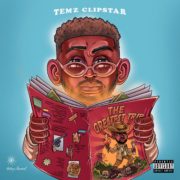Cold Summer Nights: A Conversation with [@LevelleLondon] About British R&B, New Mixtape and Early Obstacles
![Cold Summer Nights: A Conversation with [@LevelleLondon] About British R&B, New Mixtape and Early Obstacles](https://guap.co/wp-content/uploads/2019/12/Levelle9-180x180.jpg)
Like many artists, Levelle London began making music during the height of grime in 2005. The temptation to embody the grit of a Ghetts or the intangible je ne sais quoi which marinades across a Skepta’s discography with ease, was constantly embedded in Black British culture. However, some years later, towards the end of the first decade in the new millennium, London began to embark on his own mission to find a unique sound-palette. This decision quickly led to him performing with the likes of Mario and other high-profile UK artists.
Across this decade, the act has managed to leverage a distinct offering for his emerging fanbase and recover from turbulent issues in his personal life, which forced him to move out of his family home at fifteen. Now, Levelle London is back with his Cold Summer Nights mixtape, giving British R&B a contemporary face.
Levelle London joins GUAP Magazine to reflect on the recording process behind Cold Summer Nights, overcoming personal obstacles in his career and the state of play in modern iterations of R&B, both here and worldwide.
Interview lightly edited for readers
How did you pull yourself out of homelessness in your adolescent years?
Levelle London: “At fifteen, I was faced with a bit of hardship at home, which lead me to be kicked out of my house.
I had to stay with different friends, sofa surfing; sometimes I would stay with relatives, but I was never stable. At times, I was sleeping rough on TFL. I needed consent from parents to say that I was homeless up until I was eighteen, which I didn’t have, so I wasn’t made a priority for state housing. I was grafting and sofa surfing for years, whilst doing music. Then, when I finally went to a homeless shelter, they assisted me to get some housing. Now, I’m in Hackney, living, still grinding, doing my music and getting myself on my feet. I’m not fully there yet but I’m in a good place.”
Was your start in music more behind the scenes or the fully-fledged artist route?
Levelle London: “I started in school as a grime artist, but I could also sing. Everybody else could MC at school but they instantly could tell that I was really serious about being an artist. A lot of people were very good academically in school and even thought that I was bright, however, my focus was always drawn to music. I felt like it was the only thing I was good at. I then chose to study music tech and music performance at South Thames College. This is where I had experience with working with other musicians, producing and performing. Due to my personal situation at the time, I struggled to finish college and had no motivation to go to university. I decided to take my first step toward becoming a serious artist. In that same year, 2010 I ended up opening concerts for N-Dubz, Jagged Edge, and Mario.”

Your “Timmy Turner” freestyle quickly gained virality two years ago, has trap always been a sonic inspiration of yours?
Levelle London: “I’ve always liked R&B, hip-hop, grime, and garage. I’m a 90’s baby so I’ve come from all of this style of music. Trap became an interest around 2011-2012 and it became more of a heavier influence on my sound, as I was experimenting on my production and engineering for other artists.
When I started producing for other artists, I found my flavour and sound also. It brought more out of me. I feel like I was instantly able to experiment and grow by including more of my influences into my music. Whether it was my Caribbean side or African side of me, or just the part that loved all of the genres I mentioned above. My music is eclectic and a mixture of things.”
Do you feel like there’s an R&B scene in the UK?
Levelle London: “There’s definitely an R&B scene in the UK. It’s growing, but I’ve always found it tough in the UK if I’m being honest. There’s a thing that people say, “you always have to go to America if you want to do it properly”, and the biggest UK R&B artists that we know have gone over to America and become successful, for example, Ella Mai, Marsha Ambrosius, and others. But I’ve also seen people come back and remain in the same place, so I don’t know. There is hope when it comes to UK R&B but I don’t have the answers to it all. There definitely is a scene, there’s a platform called RNBRIT, they’re trying to push the scene and raise awareness for R&B in the UK, so there are people doing their thing.”
When did you start working on Cold Summer Nights and what are some of the influences on the project?
Levelle London: “I started working on Cold Summer Nights in 2017 ironically it wasn’t always called this [Cold Summer Nights] though, we had different iterations with the name before we reached this one. There’s tracks on it that I made a long time ago and there are tracks that I made more recently. When I say recently, I mean there are tracks that I made at the beginning of 2019, as there were some tracks I made to replace some of the older ones. My influences are afro-Caribbean and R&B here and just the music I generally listen to. I made it for myself and for my listeners.”
When did you know that Cold Summer Nights was complete, describe the feeling?
Levelle London: “I knew it was completed when it matched the feeling that I wanted, when I played it in full. For example, if you were going to play the tape on a cold Summer night, that would be the perfect mood. You can play it through the day on a hot sunny day, you can play it in Winter and it will still give you that bright Summer feeling, but still makes sense for the mood of the darkness. I made a balance of uplifting music that still has a warm dark feel.”

Why did you decide to release Cold Summer Nights now?
Levelle London: “I wanted the mixtape to be released last summer [2018] and then we changed again for Summer 2019, but there were a few things like changing tracks due to samples, that’s how it goes sometimes. The project still works for whatever mood. I made sure of that, so I’m happy that it’s out now. I feel like the timing worked out perfect anyway.”
As you possess quite a global sound, do you want it to resonate in the American market for instance?
Levelle London: “I agree, I feel like it is a global sound. Of course there are American influences and stuff, as well as my Caribbean and African background so I want it to resonate with anyone that resonates with me. It might sound a bit cliché but it’s literally that. I feel like when people do hear me, they connect with the music, they like the music, they relate to the music; I just need to expose it more.”
Do you still get depression and how do you cope with it?
Levelle London: “I definitely still get depression. It affects me when the seasons change and when there are drastic changes in my life I have anxiety. I get anxiety when I’m around too many people; I feel people’s energies. I’m also sensitive and highly intuitive, that’s just how in my nature. Sometimes there’s a thin line between depression and just being a highly sensitive, spiritual person that just has to guard their energy.
I have to meditate, eat the right things and to be honest I like to be by myself a lot. It’s not to isolate myself but sometimes I have to recharge. I make sure I’m surrounded by good people and good energy, and that’s why I started my brand ‘POSITIVE ENERGY,’ because I use it as a tool to balance myself out when I’ve got to be in this life where I’m sensitive to many things.”
Is trap soul or the merging of trap and R&B looked down upon compared to other styles of R&B?
Levelle London: “We’re in a place where all types of music are being appreciated. People are accepting different things now, including experimental R&B, contemporary R&B, R&B mixed with jazz, R&B mixed with hip-hop, there are loads of combinations. I don’t feel like anyone looks down on any type of R&B if I’m honest with you. I haven’t seen it personally, and it feels as though R&B is what makes everything feel the way it feels today. Hip-hop now is not the same as it was 10 years ago.
Hip-hop is mostly melodic and that’s the R&B element that it needed to keep people engaged because people’s attention spans are so short. The beats are very similar but the melodies are what is giving everyone these feelings now. Although I appreciate great lyricism, the melody is what matters now and that’s the R&B in the music, so I feel like there isn’t any ‘looking down’. R&B is always going to be here and it’s always going to develop and change and be what it is.”
Stream Cold Summer Nights below:





![ZINO VINCI’S ‘FILTHY & DISGUSTING’EP BRINGS YOU TO THE CORE OF THE ARTIST [@ZinoVinci]](https://guap.co/wp-content/uploads/2023/10/Zino-4.jpg)




